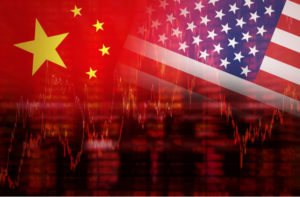
Giving western companies the chance to sell goods into Chinese markets was always the rationale for engagement with the Communist country. The potential for a “win-win” trade with China was a carrot so big, American and European leaders looked over the country’s human rights abuses and anti-freedom ideology. For a while, it seemed like it would work, that China would continue to buy more and more goods from Western brands forever, but now that dream is fading. Bloomberg’s Jinshan Hong, Yasufumi Saito, and Adrian Leung detail how China’s domestic brands are beating western brands, and ruining the China engagement story. They write:
China’s 1.4 billion shoppers were once seen as an untapped gold mine for Western brands, with their rising incomes and unleashed consumer appetites expected to drive growth for companies from Nike Inc. to Nestle SA for decades.
That calculation has changed quickly as China tussles on the world stage with the U.S. and others on everything from trade to cybersecurity and human rights. Chinese consumers are increasingly acting as an extension of the government’s political agenda—a worrying sign for global brands that have staked their futures on the $6 trillion market.
Take the humble sneaker. Four years of transactions on China’s biggest business-to-consumer e-commerce platform, Alibaba Group Holding Ltd.’s Tmall, show the speed and depth of this nationalistic pivot. Consumers are turning away from Western brands despite the millions of dollars they’ve invested into courting local shoppers. Where politics goes, so does the Chinese consumer—in a more profound and sustained manner than previously understood.
Bloomberg News’s analysis of data compiled by Hangzhou-based analytics firm Taosj.com reveals that the political incidents that periodically ensnare foreign companies in China—from Mercedes-Benz Group AG and Christian Dior SE to Dolce & Gabbana Srl—are having a more lasting impact than before. The social media storm triggered in March 2021 by a raft of foreign brands denouncing the use of cotton from Xinjiang, the province where China is accused of human rights violations against the Uyghur minority, is illuminating. It became a crucial inflection point in sneaker and sportswear sales, allowing domestic brands to dethrone Western giants for the first time.
Nike and Adidas, which said they would not use Xinjiang cotton, were sent on a downward trajectory in sales that has not yet bottomed out.
Months after the scandal, Chinese rivals like Anta Sports Products Ltd. and Li Ning Co.—which put out statements of support for Xinjiang cotton—continue to surpass them in sales. The local companies capitalized on the upswing in nationalism with products targeted at local consumers—from sweaters emblazoned with Chinese characters to sneakers inspired by the Forbidden City.
Waves of patriotism following deadly floods in Henan province in July and the Winter Olympics at the start of 2022 have regularly fed the trend.
By the end of January 2022, Anta and Li Ning dominated 28% of sneaker sales, 12 percentage points higher than before the Xinjiang outcry.
Overall in the 12 months ending Jan. 31—a year when China’s borders remained shut to keep out Covid-19, and it came under attack over the virus’s origins—sales growth for top Chinese sneaker brands was about 17%, while foreign brands saw a decline of 24%.
It’s not exclusive to sneakers. Similar patterns of nationalistic consumption are found in cosmetics and soft drinks to baby food and apparel. Local brands have already unseated global ones like Nestle as the top online sellers, reversing years of domination. Sectors like luxury and beauty care where Western giants still reign may not be far behind.
Read more here.



